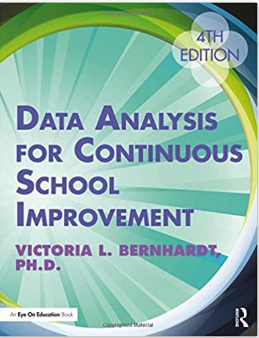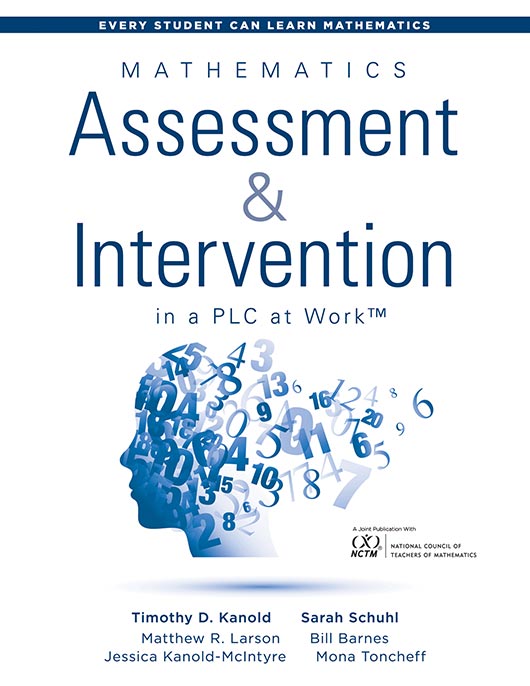Coaching Corner
Support the Gathering and Use of Data to Inform Continuous Improvement
Essential Coaching Action 5 is to support the collection and use of data to inform continuous improvement. Effective use of data is at the core of any continuous improvement process. Coaches play a critical role in modeling how to use data to inform instructional decisions and program improvements through the use of plan, do, study, and act cycles.
- Clarify data needed for ensuring continuous improvement
- Gather data about mathematics coaching
- Use data for goal setting, coaching, and analysis of instruction and student learning
These professional development modules assist leaders in “jump starting” formative assessment, K-16. The collection contains an overview and modules, each highlighting one aspect of formative assessment with PowerPoints, Leaders’ Notes, and handouts as needed.
Plan, Do, Study, Act Cycle for continuous improvement.
This can be used to guide teams to have data driven conversations.
A formative assessment tool that can be used with a team of teachers to analyze student learning data and plan for next instructional steps.
Listen to Natalie Crist, elementary math specialist, share her coaching story of working with teachers focusing on the CCSS Standards for Mathematical Practice and classroom-based formative assessment.
Listen to Lindsay Kelley, Math Instructional Support Teacher, Howard County Public Schools, describe how the development and evaluation of common assessments with her grade-level math teams provided a way for this middle school math coach to focus her work. Through this developmental process, teachers appreciated the value in unpacking the units of work, working collaboratively, and focusing on how to teach the Standards.
Listen to Sally Robinson, a District Secondary Mathematics Specialist, share how to use assessment tools effectively to make data based decisions about student performance will ultimately increase teacher awareness, assist with instructional decisions and improve student performance. Pre and post analysis of questions, standards, and by students and classes will increase reflective practice and effective instruction.
Listen to Joe Hinson, Mathematics Specialist, Frederick County Public Schools, MD, describe when teachers focused on three main goals: becoming more intentional with their instruction by describing in greater detail what it would look like; incorporating the use of manipulatives and teaching at a concrete level when introducing new skills; and demonstrating ownership of their students' data (whether good or bad) student achievement improved.
Tuba Dundar, Mathematics Instructional Coach, Lisa Academy – North, shares her story about holding one on one data meetings after testing between teacher, coach and administration, between teacher and student and the benefits of those meetings.
Sally Robison, District Secondary Mathematics Specialist, North Little Rock School District shares her story of using an assessments tool effectively to make data based decisions about student performance will ultimately increase teacher awareness, assist with instructional decisions and improve student performance. Pre and post analysis of questions, standards, and by students and classes will increase reflective practice and effective instruction.
 Data Analysis for Continuous School Improvement provides a new definition of school improvement, away from a singular focus on compliance, toward a true commitment to excellence. This book is a call to action. It is about inspiring schools and school districts to commit to continuous school improvement by providing a framework that will result in improving teaching for every teacher and learning for every student through the comprehensive use of data. A culmination of over 30 years of doing the hard work in schools and districts both nationally and internationally, Data Analysis for Continuous School Improvement shares new, evidence-based learnings about how to analyze, report, communicate, and use multiple measures of data. The updated edition provides a wealth of tools, protocols, timelines, examples, and strategies that will help schools and districts become genuine learning organizations.
Data Analysis for Continuous School Improvement provides a new definition of school improvement, away from a singular focus on compliance, toward a true commitment to excellence. This book is a call to action. It is about inspiring schools and school districts to commit to continuous school improvement by providing a framework that will result in improving teaching for every teacher and learning for every student through the comprehensive use of data. A culmination of over 30 years of doing the hard work in schools and districts both nationally and internationally, Data Analysis for Continuous School Improvement shares new, evidence-based learnings about how to analyze, report, communicate, and use multiple measures of data. The updated edition provides a wealth of tools, protocols, timelines, examples, and strategies that will help schools and districts become genuine learning organizations. This book shares rubrics to use with teachers and teams related to developing high-quality common assessments and using assessments as part of a formative process with students to improve learning and to create effective Tier 2 interventions.
This book shares rubrics to use with teachers and teams related to developing high-quality common assessments and using assessments as part of a formative process with students to improve learning and to create effective Tier 2 interventions.Read a story from Lourdes Goodnight, District Math Program Administrator and Kat Bir, Elementary Math Coach, on their effective push-in coaching model.
A 5th/6th grade math coach, Ronda Phillips, Math Coach, Bentonville Public Schools, uses an informal conversation about student work to open the door to a formal coaching cycle with a team of hesitant teachers.
A middle school math coach, Kim Woods, 5-6 Math Coach, Bentonville Public Schools, works with teachers to resolve a conflicting view of a common assessment and rubric through collaboration.
